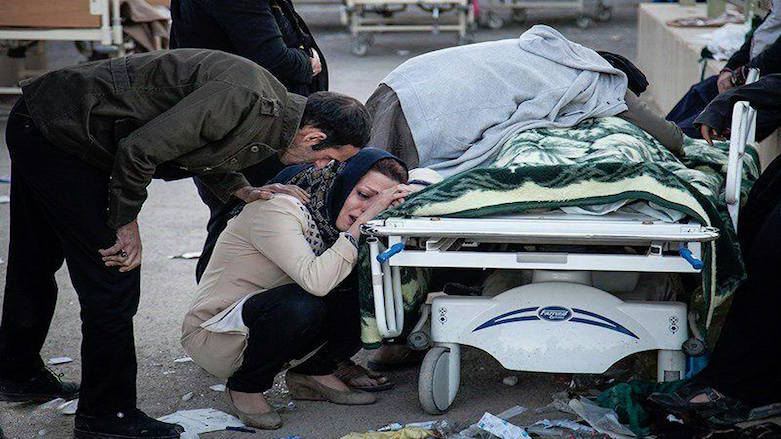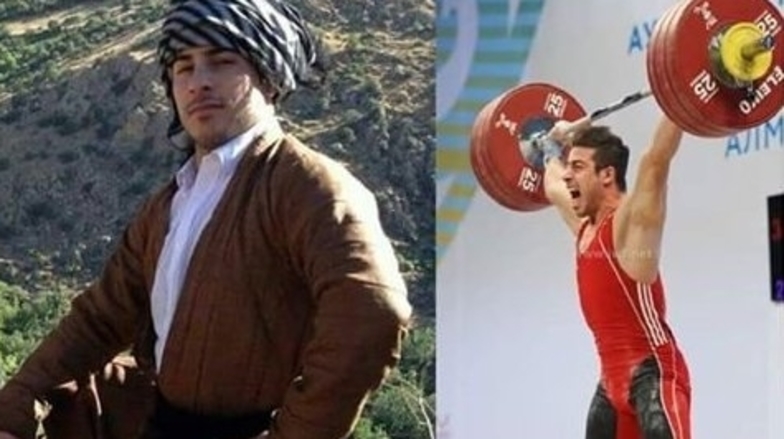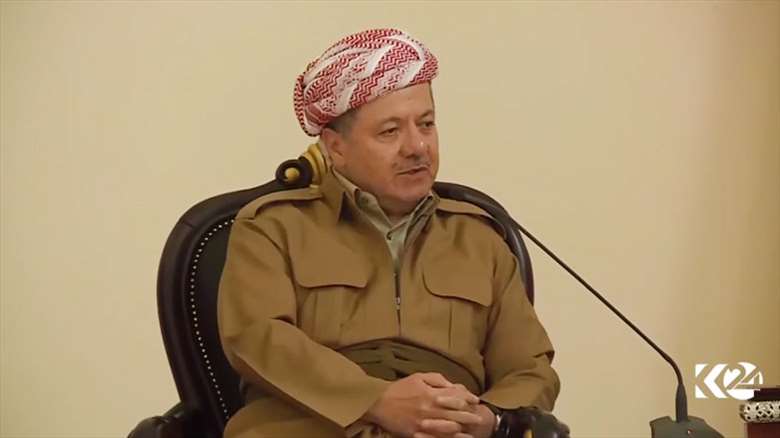Cold, hungry earthquake survivors are outraged

ERBIL, Kurdistan Region (Kurdistan 24) – Iran ended rescue operations on Tuesday after an earthquake claimed over 530 lives in the Kurdish region of the country.
Survivors of Sunday’s 7.3-magnitude earthquake—many homeless now—remain in desperate need of shelter, food, and water.
“I wish instead of a 7-magnitude, a 10-magnitude earthquake had hit and killed us all,” Parvin Kamangar in Sarpol-e Zahab, one of the hardest-hit towns, told Kurdistan 24 over the phone. She also claimed her hungry children, in the freezing autumn weather, had not received a tent.
Iranian President Hassan Rouhani traveled to the affected region Tuesday morning, promising the government would do everything in its power to help the survivors.
A viral video on social media showed people booing when President Rouhani claimed the Iranian Revolutionary Guards Corps (IRGC) had rescued civilians.
State media showed rescue workers searching through rubble in dozens of villages and towns, but by Tuesday morning, the government ended its operation, claiming it was unlikely any other survivors would be found.
“The rescue operations in Kermanshah Province have ended,” Pir-Hossein Kolivand, head of Iran’s Emergency Medical Services, said.
“People in some villages are in dire need of food, water, and shelter,” said the governor of Qasr-e Shirin County in Kermanshah Province, Faramarz Akbari.
The mayor of Ezgeleh, a city in Kermanshah, said 80 percent of its buildings had collapsed. Survivors were in desperate need of tents as the elderly and babies as young as one-years-old slept in the cold for two straight nights.
In an interview with state television, Nazar Barani asked people to send fuel, milk, water, and food as emergency services were too slow and provided limited provisions.
“People are hungry and thirsty,” a local man told ISNA news agency. “There is no electricity. Last night, I cried when I saw children with no food or shelter.”
Among the collapsed buildings were homes that the government had built in recent years under an affordable housing program called “Maskan-e-Mehr.”
The latest death toll is the highest in Iran in over a decade. Some 30,000 homes are damaged, and two villages are completely destroyed.
Although the epicenter of the quake was on the Iraqi side of the frontier, Iran experienced most of the casualties.
Kurdistan Region authorities said seven people were killed and 325 others injured on their side of the border.
Editing by Karzan Sulaivany


